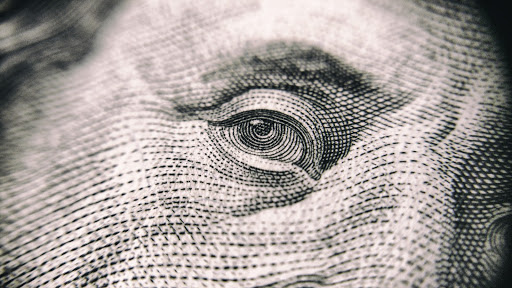Are you financially prepared for the unexpected?
There are lots of posts these days on the subject of “how many savings should I have at 30 or 40” which most of us shake our heads at. The truth is many of us live paycheck to paycheck, and as we saw with the recent government shutdown, some of us are just one financial emergency away from panic.
You don’t need to be wealthy to make sure you have an emergency fund. The shutdown should be seen as a wakeup call to make sure you have an emergency cash buffer for when the unexpected hits.
No matter what your level of income, now is the time to start saving money so you don’t suffer when the unexpected happens.
How Much Money Should I Keep in an Emergency Fund?
At a minimum, you want to have one month’s worth of expenses in a savings account. Financial experts have differing opinions on this, however, with some saying you should have three months worth, and some as high as eight months.
If you need a simple way to determine how much you should put in an emergency fund, try this emergency fund calculator from Money Under 30.
If you have more than a few months worth of expenses put away and little to no debt you may want to invest some of it. Though you will not have ready access to that money, it will also grow much faster to help you down the road.
To help you set up a financial balance, read our post on how to manage your savings, investments and emergency fund.
Where Should I Put My Emergency Fund?
When it comes to picking a place to store your emergency fund, above all you should avoid a checking account. With their low-interest rates, money stored long-term in checking accounts will actually lose value in the long run due to inflation.
You might be considering keeping your funds in cash at home. While it is always a good idea to keep some emergency cash on hand, there are several strong reasons why you should not keep large amounts of cash at home!
You will want to find an account that offers interest on your funds, but also no fees or minimal fees when you need to access them.
Consider one of these two account types for your emergency fund:
- High-yield Savings Account: This type of savings account keeps your emergency fund accessible while also providing you with interest on your money. It is worth shopping around for accounts to find one that has no monthly fee and a competitive interest rate.
- Money Market Account: A money market account is a type of savings account that offers very high-interest rates, with the best rates being offered to higher balances. You can access your money any time, but you are very limited to the number of monthly transactions. Depending on the account, you may need to maintain a minimum balance.
3 Strategies to Start Building Your Emergency Fund
1. Set up an Automatic Monthly Transfer
Consider setting up an automatic monthly transfer of $20 or more from checking to your emergency fund. That way your emergency fund will grow even if you don’t want to manually shift money over each month.
2. Sell Something
It will be easier to sell your old guitar or motorcycle now when you are not dealing with an urgent expense. Not to mention that if you put that money in high-interest savings account it will grow before you would ever need to access it.
3. Modify Your Budget
If you are struggling to put money aside to add to an emergency fund, maybe you need to shift your budget. The money you save from cancelling one night out or a round of drinks can be applied to your emergency savings instead.
If you struggle to maintain a budget, try reading our list of 6 creative ways of making budgeting more fun.
When Should I Be Using my Emergency Fund?
You must keep in mind that an emergency fund is not the same as normal savings. It is meant to be kept aside in the eventuality of a true emergency. If you use it early on something that wasn’t completely necessary, you will be kicking yourself when a financial emergency hits.
Ask yourself these three questions before using your emergency fund:
1. Is this an unexpected expense?
If you have lost your job, this fund is to keep the lights on. If a flood hits, use the emergency fund to pay your insurance deductible.
2. Is this expense a necessity?
This fund is there when an expense is unexpected and can not be avoided. It is not there to be a down deposit on a car or to finance your home renovations. You should be saving separately for those other major purchases!
3. How urgently does this thing need taking care of?
An unexpected medical expense is urgent, as is repairing a broken furnace in the middle of winter. Having your oven break, however, is less urgent as you still have other ways of preparing food.
Get Started Today
If you took nothing else away from this post, it is that you should get started on your emergency fund today!
If you require financial advice on how to eliminate debts and start saving more, consider reaching out to us at RepairCreditQuick. We’ll send you your credit report and provide you with a free consultation on how we can help you begin to repair your finances.
To get started, contact one of our agents today.

